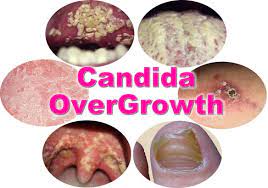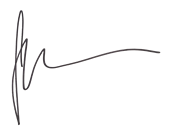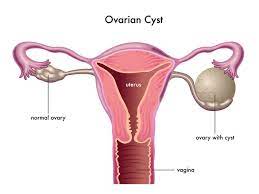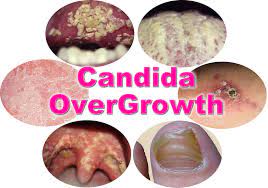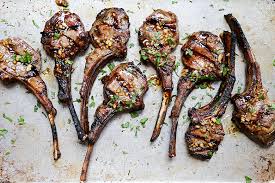Maybe, maybe not… your bloat could also be dysbiosis which means an imbalance between good and bad bacteria in your gut, it might be a food allergy, it might be a low production of digestive juices, it might just be trapped wind or something else!
Typical symptoms of an intestinal Candida overgrowth
- Bloating (esp. after eating)
- Diarrhea
- Constipation
- Nausea
- Acid/GERD/heartburn
- Lethargy
- Sweet craving
- IBS,
- Depression,
- Allergies,
- Recurrent colds,
- Eczema,
- Palpitations
- Recurrent vaginal thrush
- Recurrent cystitis and even more.
I have clients who have tried everything under the sun to figure out why they can’t lose weight and are bloated all the time. After I take the time to hear what has been going on and I feel a stool test is the next step 99 percent of the time I find some sort of critter hanging out which is usually the cause of their health concerns.
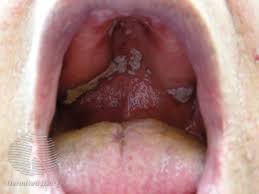
Up until recently it was difficult to be sure. Now there is a simple stool test available, which
can be done from the comfort of your own home, giving you a scientific diagnosis on Candida so you can be sure.
Why a Stool Test may save you time and money
The test can be carried out simply and efficiently from home which can give a more accurate diagnosis of your symptoms. This saves you ‘guessing’ and wasting money on products which might not be appropriate. In the past, Intestinal Candida was only diagnosed by the use of a symptom questionnaire but the only scientifically correct test for Intestinal Candida is to take a stool sample from which a microbiological culture is prepared.
STOOL TESTING SERVICE
This is why I use Parasitology’s full GI-panel with H. Pylori for all my clients. It is a kit you can do right from your own home and get a ton of information in regard to what is really going on in your gut.
This will then show the species, strain and cell count. It also tests for all different types of parasites, tape worms, round worms, Fungus, yeast, digested and undigested foods, bacteria, SIBO (lower colon), H. Pylori, Candida, antibiotics you are resistant to and the list goes on. It is super comprehensive and has amazing lab techs who are extremely knowledge when it comes to identifying these critters in your gut.
Should you proceed to have a stool test and it is confirmed as containing high levels of Candida, what’s the next step?
You will work with your practitioner and take specific supplements with herbs and make some dietary changes to kill the Candida or any other things that are found in the stool test.
On the following page, I am listing some recommendations that you can use for some self-help in the meantime.
Food
- As far as your diet is concerned, you must avoid sugar and sugary foods as Candida literally thrives on it.
- Avoid milk at all costs as lactose promotes Candida Albicans. Use sheep and goat’s milk instead. Other milk substitutes like rice and soya milk are fine.
- Any foods that have mold or fungus such as mushrooms, aged cheese, and peanuts.
- Avoid foods with yeast. This does of course mean bread as far as possible. There are some good breads that are yeast free so this shouldn’t be too much of a hardship.
- While you are trying to rid yourself of Candida, it is good advice to refrain from – or at least reduce – alcohol as the yeast content will just encourage yeast growth and fermentation.
- With your diet generally, eat fresh food as far as possible, particularly lots of vegetables. Keep up reasonable levels of fruit which is so healthy for you. However, as fruit contains sugar naturally, it may cause a ‘flare up’ so be vigilant.
Supplements
Probiotics
Firstly, take a good probiotic capsule daily as the good bacteria helps to suppress the growth of the Candida. The inhibition of Candida by probiotic bacteria in the alimentary and vaginal tracts represents a key, first-line defense against mucosal and systemic Candidiasis. Probiotics are a vital addition to anti-fungal nutrients and reduce the risk of recurrence. The use of probiotics can also help to fortify natural resistance of the gut microflora to Candida Albicans, particularly if antibiotics are used.
HERBS:
There are a number of anti-fungal that can help your condition. Two of my favorites are Grapefruit extract, oregano oil and garlic. Grapefruit is an excellent anti-fungal and one of the reasons I like it is because it is completely non-toxic, and it does not affect the beneficial intestinal flora. Grapefruit has been used in the treatment for Candida for many years and it is better tolerated than most anti-fungal. It is also non-allergenic even to people with citrus allergies.
Garlic
Garlic has traditional dietary and medicinal applications as an anti-infective agent. There is plenty of evidence of the antimicrobial activity of garlic called allicin fights against many bacteria, viruses and fungi including Candida Albicans. The active constituent of garlic is the compound allicin which is formed when garlic cloves are crushed. Just eating a lot of garlic in your good will not kill Candida.
Some important facts about Candida
So, you hear and read a lot about this mysterious Candida, but what is the truth and what is myth?
The Intestinal Flora
In our intestines we have about 500 different species of micro-organisms, mostly bacteria. Usually, bacteria are thought to be the bad guys, which make us ill, but in fact we need these tiny tenants to keep food bugs and upset stomachs at bay and to produce a number of useful substances for our health. These good guys are called “The intestinal flora”.
What is Candida?
Candida is a fungus which also belongs to the intestinal flora. These can be yeasts, similar to the ones we know for baking bread or making wine or molds similar to the tasty ones, which make cheeses. Or they can even be the black stuff, which causes food to ferment and decay. Usually, their numbers are small. Candida is a kind of yeast, a tiny single celled organism, which in normal circumstances is a harmless part of our intestinal flora.
Why does Candida cause all these symptoms?
Once Candida or other fungi have managed to overgrow our healthy intestinal flora, they usually grow from harmless round cells into filament shapes. These develop the ability to cling to our intestinal walls and they can be very persistent.
An important part of our immune system is located in our intestines. Here, white blood cells get their training to distinguish bad from good and then they migrate to many other parts of the body to do their work. The fungal overgrowth can irritate this system heavily and may cause the immune system to react allergically to different substances, especially foods.
The local irritation can also cause the “tight junctions” between the gut wall cells to become leaky (Leaky Gut Syndrome), so that food not properly digested can slip into the blood stream and also cause allergic reactions.
In addition to this, fungi give off gas and toxins, especially when they are well fed. The gas results in heavy bloating, especially after a rich meal in carbohydrates, and the toxins stress the liver and nervous system, thus causing the chronic tiredness.
Why do we get Candida?
Typically, our own friendly bacteria keep fungi in our intestines at bay. Just sometimes our little helpers are weakened, for example by treatments with antibiotics, cortisone, hormones, other drugs or too much sugar in our diet, or our immune system is weak for some reason. In this case the fungi can cause symptoms rapidly.
Candida is not always the culprit
Even if you think you clearly recognize your own problems in this description, fungi may not be the cause at all. These symptoms can also be caused by something completely different.
This is why a safe diagnosis is essential; otherwise, you could waste money and possibly loose valuable time by “barking up the wrong tree”.
TEST DON’T GUESS
Functional Diagnostic Nutrition Practitioner, CHEK Holistic Lifestyle Coach, NESTA Certified Personal Trainer, NASM Certified Personal Trainer, ACSM Wellness and Nutrition Coach, and Metabolic Typing. American Association of Drugless Practitioners

